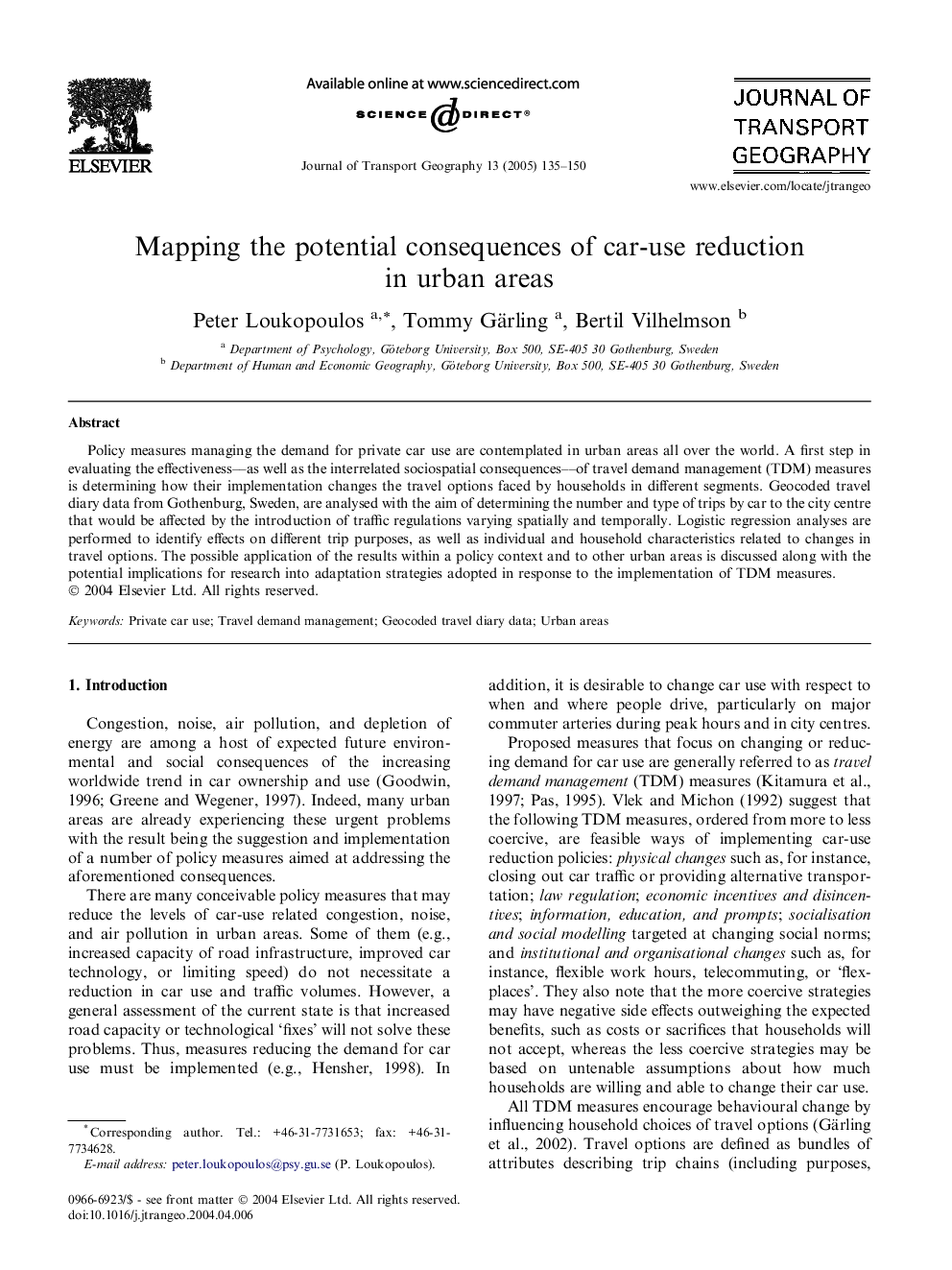| Article ID | Journal | Published Year | Pages | File Type |
|---|---|---|---|---|
| 10506476 | Journal of Transport Geography | 2005 | 16 Pages |
Abstract
Policy measures managing the demand for private car use are contemplated in urban areas all over the world. A first step in evaluating the effectiveness--as well as the interrelated sociospatial consequences--of travel demand management (TDM) measures is determining how their implementation changes the travel options faced by households in different segments. Geocoded travel diary data from Gothenburg, Sweden, are analysed with the aim of determining the number and type of trips by car to the city centre that would be affected by the introduction of traffic regulations varying spatially and temporally. Logistic regression analyses are performed to identify effects on different trip purposes, as well as individual and household characteristics related to changes in travel options. The possible application of the results within a policy context and to other urban areas is discussed along with the potential implications for research into adaptation strategies adopted in response to the implementation of TDM measures.
Keywords
Related Topics
Life Sciences
Environmental Science
Environmental Science (General)
Authors
Peter Loukopoulos, Tommy Gärling, Bertil Vilhelmson,
